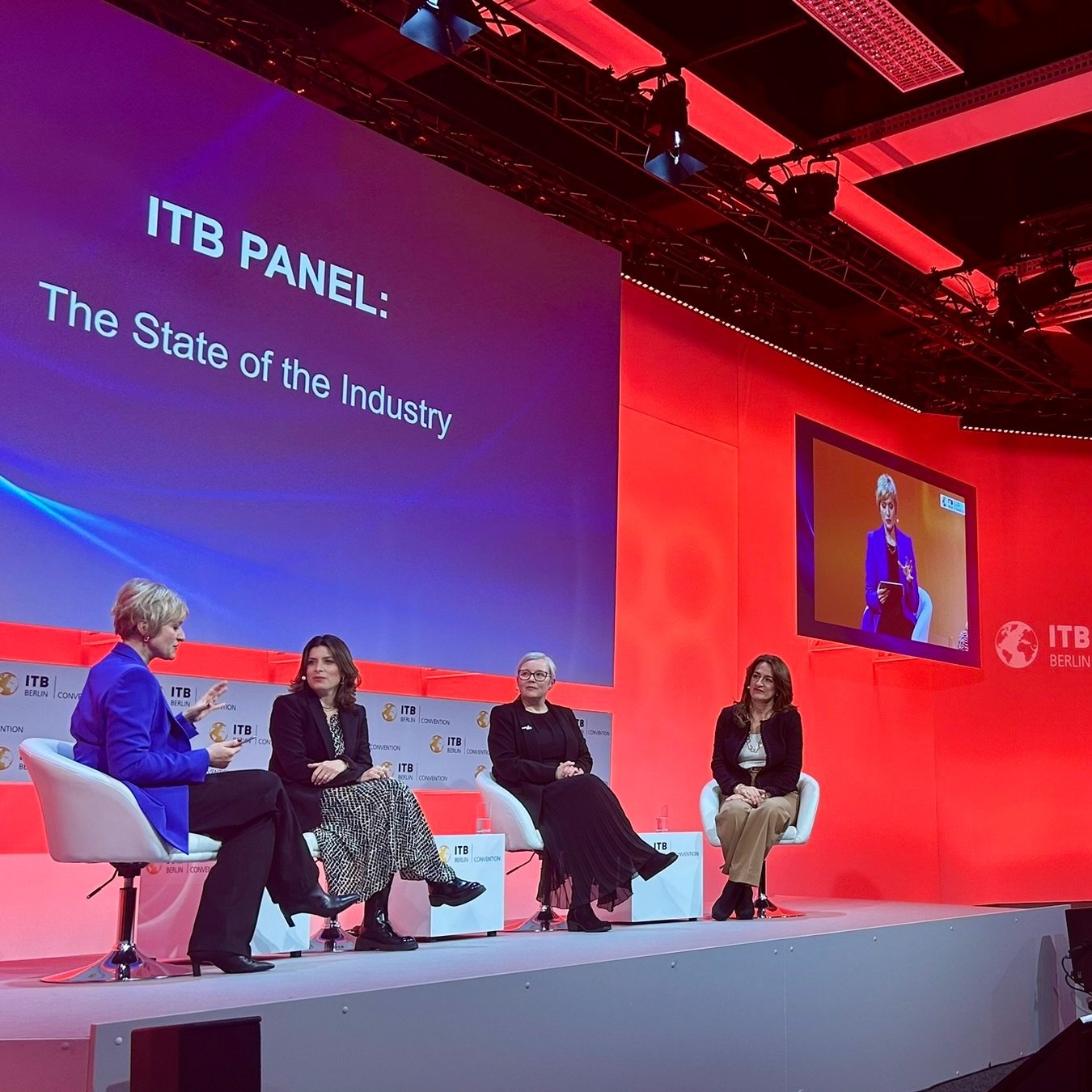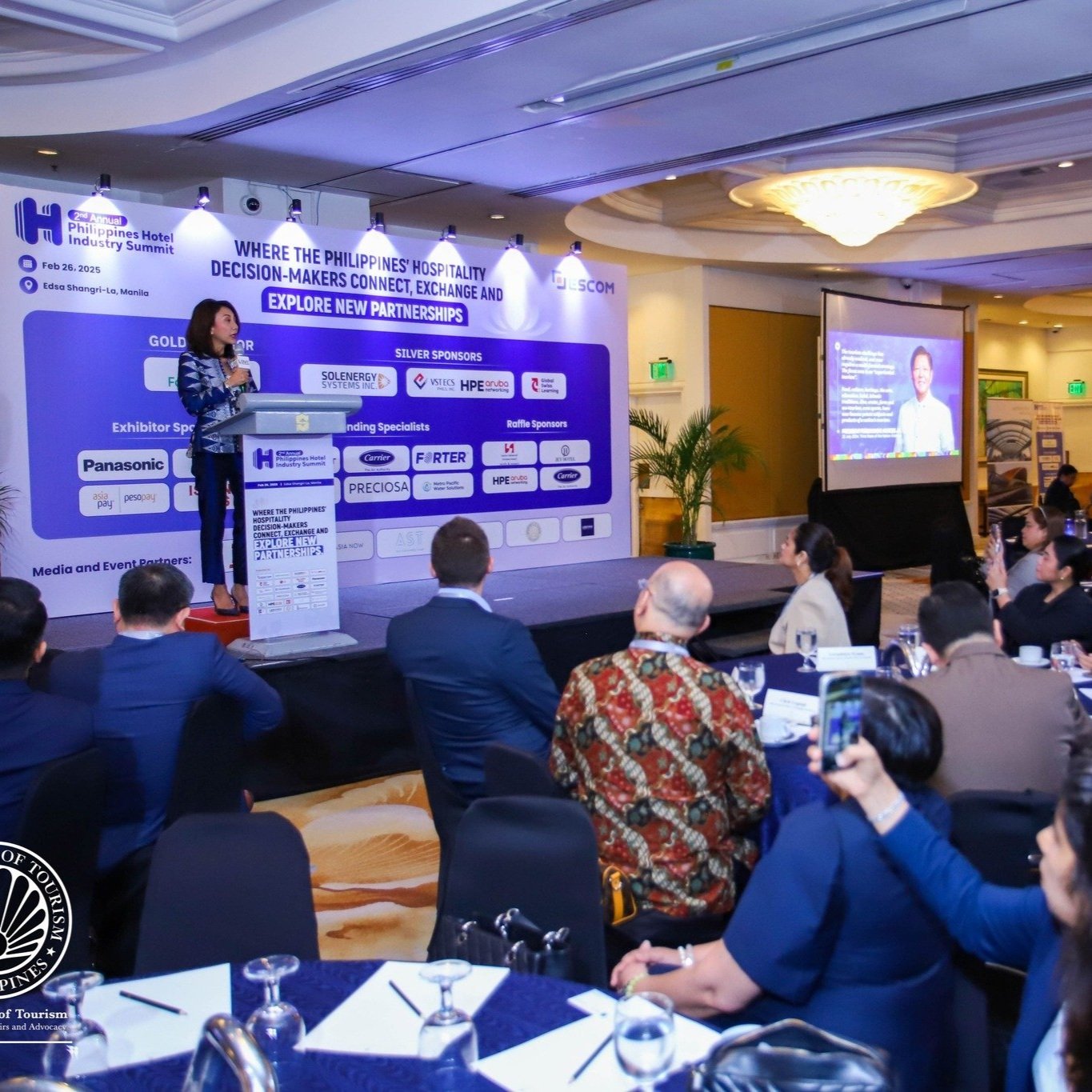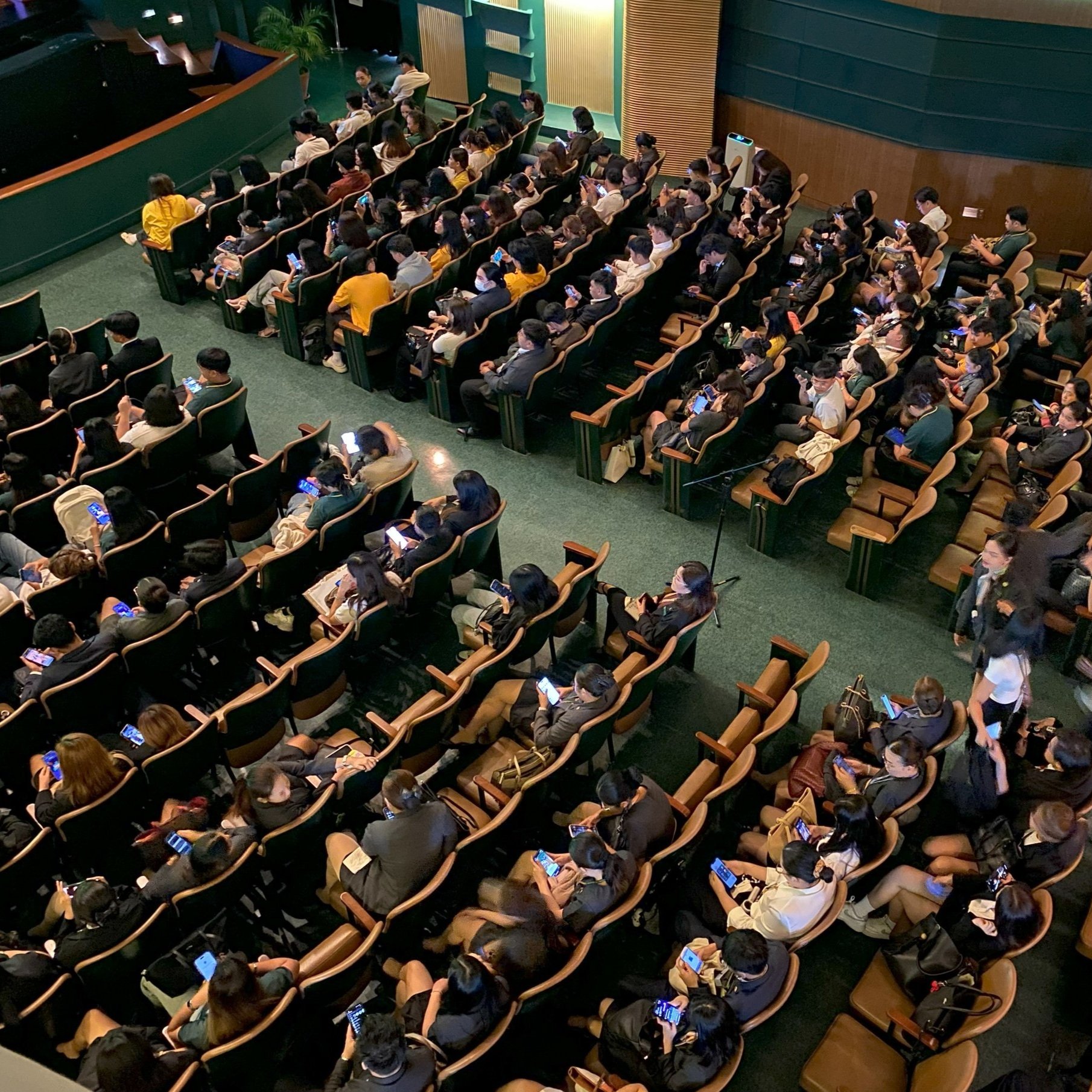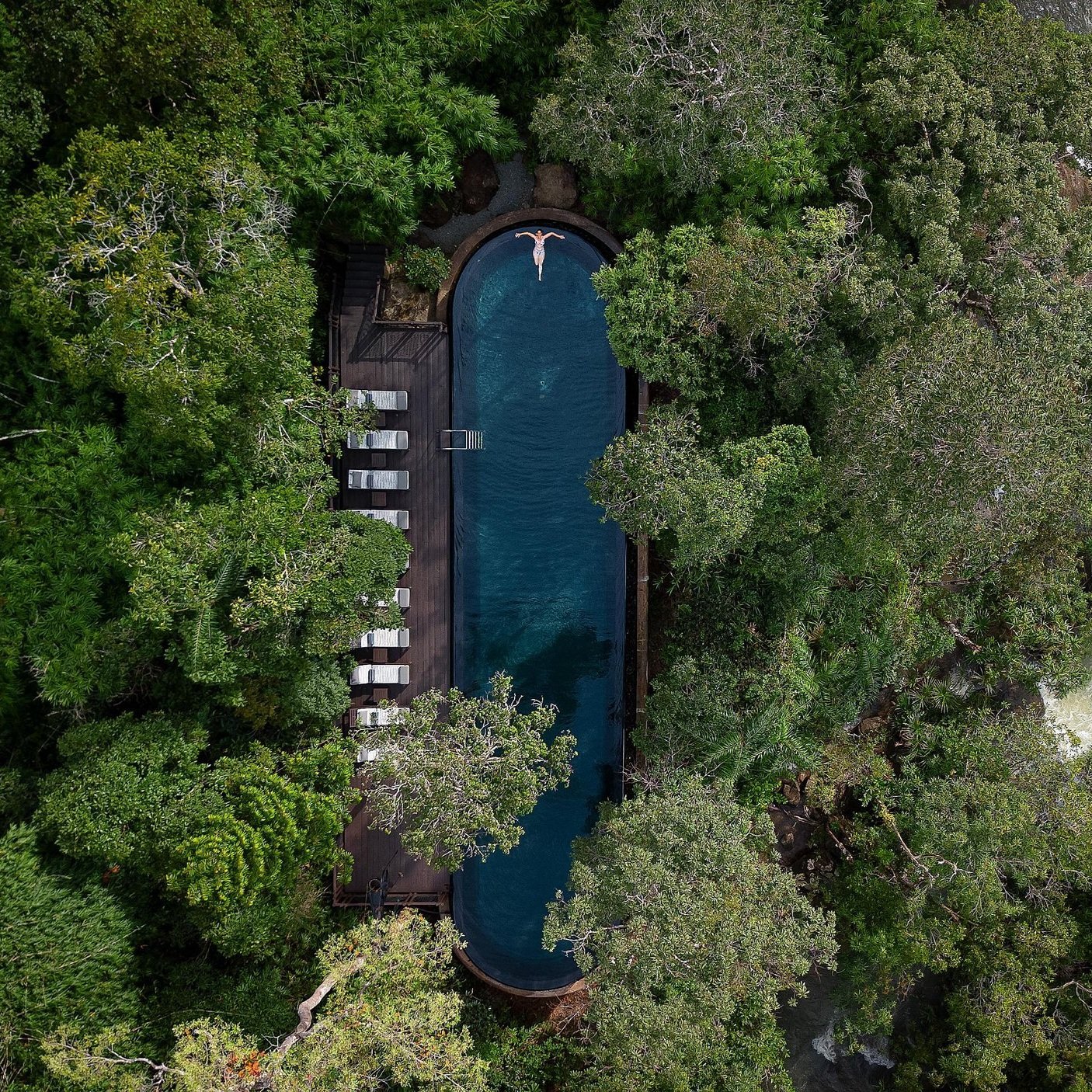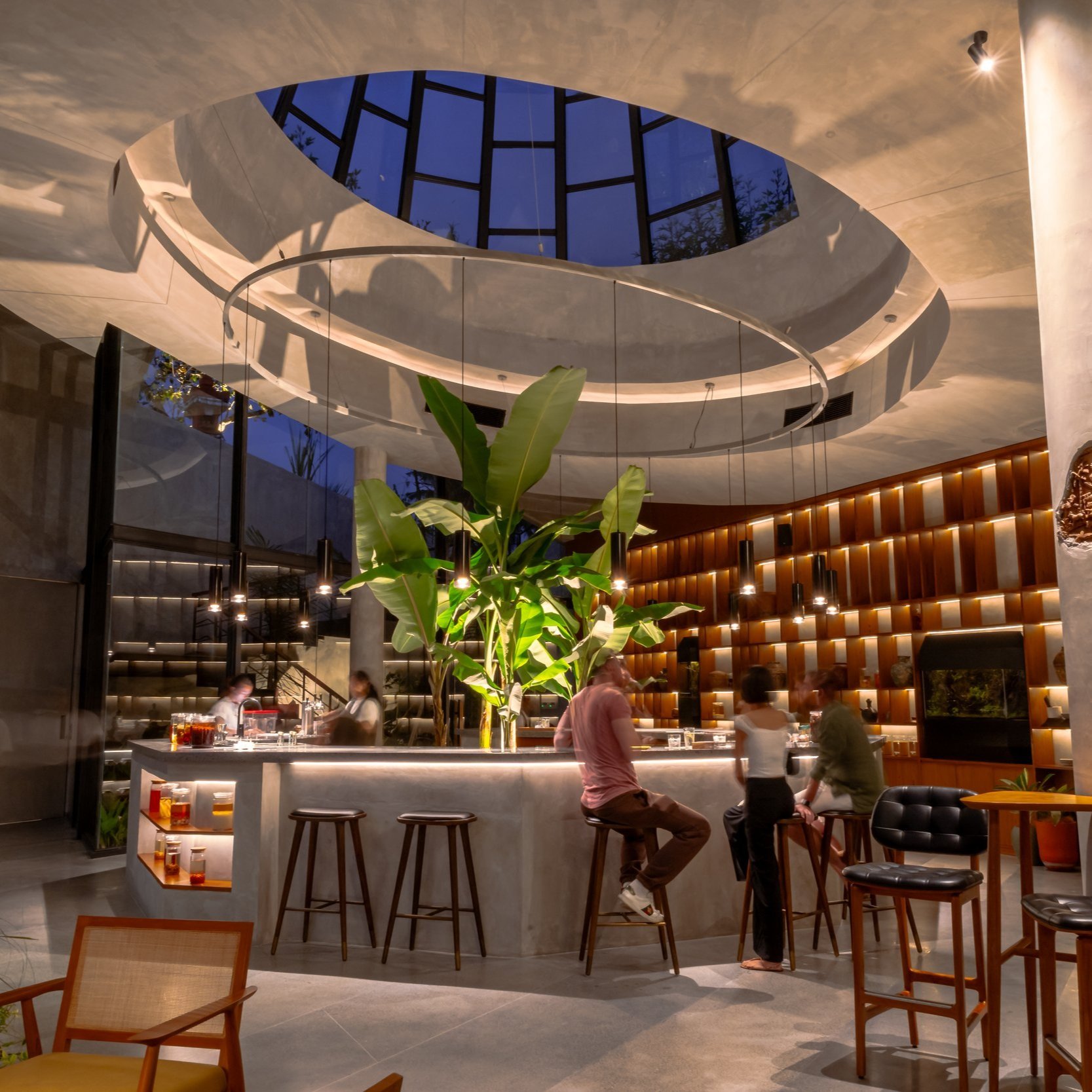Powering Philippine Tourism with Renewable Energy Innovations
The 2nd Asia Sustainable Travel Forum for Next-Gen Leaders took place in Manila on Earth Day 2025, attended by tourism and hospitality management students from Far Eastern University Manila. With the theme “Powering the Future: Renewable Energy in Philippine Tourism,” the forum sparked discussions on how renewable energy can reshape the tourism industry in the Philippines, equipping future leaders with ideas and strategies to drive meaningful progress in the industry.
Can Asia’s Hospitality Industry Rebuild Its Food Chain Before It Breaks?
For years, luxury travel in Asia has revolved around a predictable formula: international fine dining, pristine plating, and imported “premium” ingredients. However, the environmental toll of this model is becoming harder to ignore. According to the European Commission, transporting food accounts for nearly 20% of all food system emissions, with long-haul imports for out-of-season produce and meat playing a major role.
Cut the Waste & Emissions, Not the Flavor: Tech-Driven Solutions for Hotels & Restaurants
The hospitality sector faces rising pressure to address food waste and carbon emissions, but technology offers a smarter way forward. From AI tools that forecast diner demand to blockchain systems ensuring supply chain transparency, hotels and restaurants are adopting innovative solutions to create more sustainable dining operations. Learn how these cutting-edge technologies, paired with actionable strategies, are helping businesses reduce waste, cut costs, and appeal to eco-conscious diners while honoring regional dining traditions.
Plastic-Free Hospitality: What You Need To Know About Eco-friendly Packaging
The hospitality industry in Asia contributes significantly to packaging waste, particularly plastic waste. Today, hotels still rely heavily on single-use plastics for toiletries, takeaway containers, and in-room amenities.
According to the United Nations Environment Programme (UNEP), the tourism sector in Asia generates over 4.7 million metric tons of plastic waste annually, much of which unfortunately ends up in landfills or waterways.
Without intervention, plastic pollution is projected to triple by 2040 worldwide, according to Pew Charitable Trusts.
The shift toward reusable, compostable, or biodegradable packaging is crucial, yet many hotels struggle with adoption.
Closing the Loop on Hotel Waste with Creative Solutions
The hospitality industry faces a critical waste challenge, but innovative solutions are reshaping its future. From upcycling discarded linens to crafting ocean trash tote bags, this article highlights creative initiatives that transform waste into opportunity.
ITB Berlin 2025: Global Tourism Rebounds, But Can It Regenerate?
As the world’s premier travel trade show, ITB Berlin 2025 delivered a dynamic platform for industry leaders, policymakers, and tech innovators to discuss the future of tourism. From discussions on sustainability, AI, and inclusivity to the inaugural UN Tourism Ministers Summit, this year’s event emphasized not only tourism’s rapid evolution but also the pressing challenges. Sessions tackled visitor dispersion, regenerative tourism, and evolving traveller expectations, all while addressing the impact of technology, climate change, and economic shifts on the global travel industry.
Beyond Numbers: Culture, Purpose, Innovation Drive the Conversations at the Philippines Hotel Summit 2025
Explore how the Philippines is revolutionizing its hospitality sector by prioritizing sustainability, cultural preservation, and innovation. From eco-conscious practices to unique Filipino-inspired experiences, discover insights from the 2025 Philippine Hotels Industry Summit driving responsible and high-impact tourism growth.
Lead the Fight Against Climate Disinformation in 5 Strategic Steps
Greenwashing has become pervasive in many industries with direct environmental impacts, such as energy, construction, travel, and hospitality.
The United Nations Environment Programme (UNEP) warns that greenwashing undermines the credibility of legitimate sustainability efforts, erodes public trust, and slows down meaningful progress.
There are two kinds of greenwashing: deliberate and unintentional.
Research indicates that approximately 25% of tweets refuting the science behind climate change are generated by automated accounts (bots). This act of disinformation, which means deliberately disseminating false or misleading information to manipulate, mislead, or create confusion, presents a pressing challenge for sustainability professionals: how can their team communicate genuine sustainability efforts without getting drowned out by misleading claims and PR spin?
At the same time, in tourism and hospitality, many brands contribute to misinformation because of misunderstandings, lack of research, or reliance on inaccurate sources.
This unintentional act stems from the pressure to appear sustainable in a competitive market, leading companies to overstate their environmental commitments, rely on ambiguous language like “carbon-neutral stays” without a robust verification, use flawed carbon offset programs, or misinterpret complex sustainability metrics. While well-intended, the misleading claims erode consumer trust and slow genuine progress.
Preparing Hospitality’s Next Leaders at the AST Forum in Manila
The AST Forum for Next-Gen Leaders brought over 400 students, experts, and educators together at Manila's UNESCO-recognized Far Eastern University to reimagine the future of sustainable tourism. With a focus on smart technology, carbon reduction, and community-driven innovations, the event explored practical strategies to balance modernization and sustainability. From IoT-powered energy solutions to revitalizing cultural heritage and electric transport systems, this forum equips future leaders with tools to make lasting, impactful change in the hospitality industry.
Sustainability Certifications: Green Stamp or Greenwash? APAC Travel Leaders Weigh In
As part of Asia Sustainable Travel (AST)'s ongoing commitment to better support the hotel and travel industry, we conducted a survey to understand how APAC hospitality and travel professionals perceived and evaluated sustainability certifications, such as B Corp, Positive Luxury, and those accredited by Global Sustainable Tourism Council (GSTC).
This report synthesizes key findings from the survey and provides targeted recommendations to enhance the effectiveness of sustainability certification schemes.
Fiji’s Sustainable Tourism Playbook: Lessons for Island Destinations
Fiji is setting the standard for sustainable tourism practices, blending economic growth with cultural and environmental preservation. This article explores the island nation's strategies, from empowering Indigenous communities to leading with data-driven tourism insights. Discover how initiatives like the National Sustainable Tourism Framework and programs like Loloma Hour are creating inclusive, sustainable models that hospitality and travel professionals in Asia can adapt to their own destinations.
Hyperlocal and Heritage-Driven: How These Bali Restaurants Redefine Sustainability
In the dynamic hospitality landscape of Southeast Asia and the Asia-Pacific region, a few trailblazing establishments are redefining sustainability, community engagement, and innovation. Locavore NXT, Begawan Biji, and John Hardy The Long Table in Bali serve as exemplary case studies, demonstrating how fine dining and luxury experiences can harmoniously align with environmental stewardship and cultural preservation. These businesses provide valuable insights for restaurants striving to place sustainability at the heart of their business.
Work with us
Ready to take your business to the next level — with purpose?
From B2B content development, such as impact reports and newsletters, to speaking engagements and business match-matching, we offer a full suite of services designed to grow your business and drive enduring impact.
And we don’t stop there. 5% of all revenue goes directly to traceable social and environmental initiatives across Asia.







